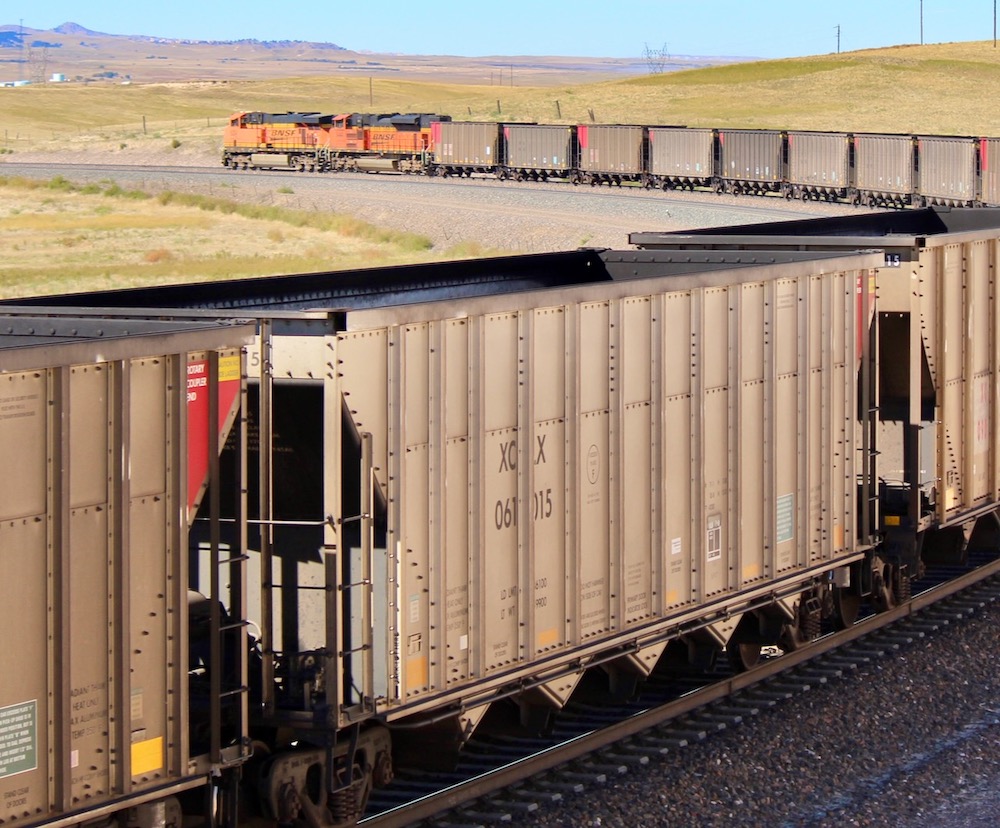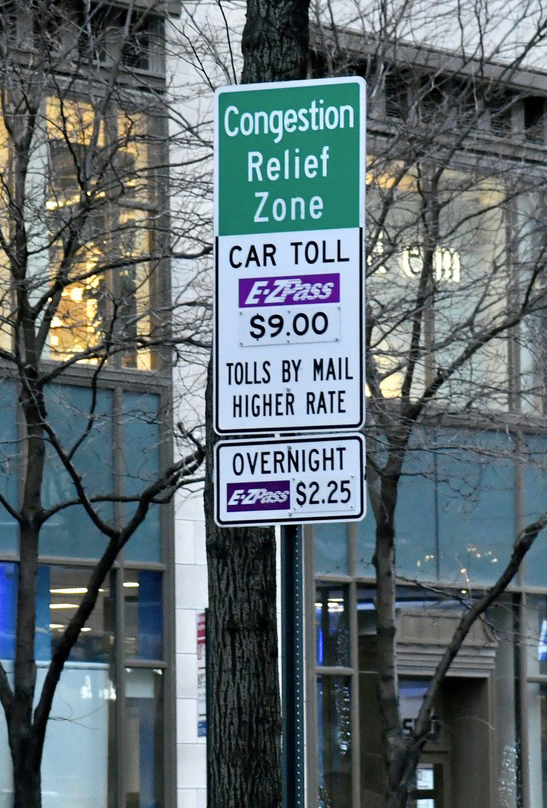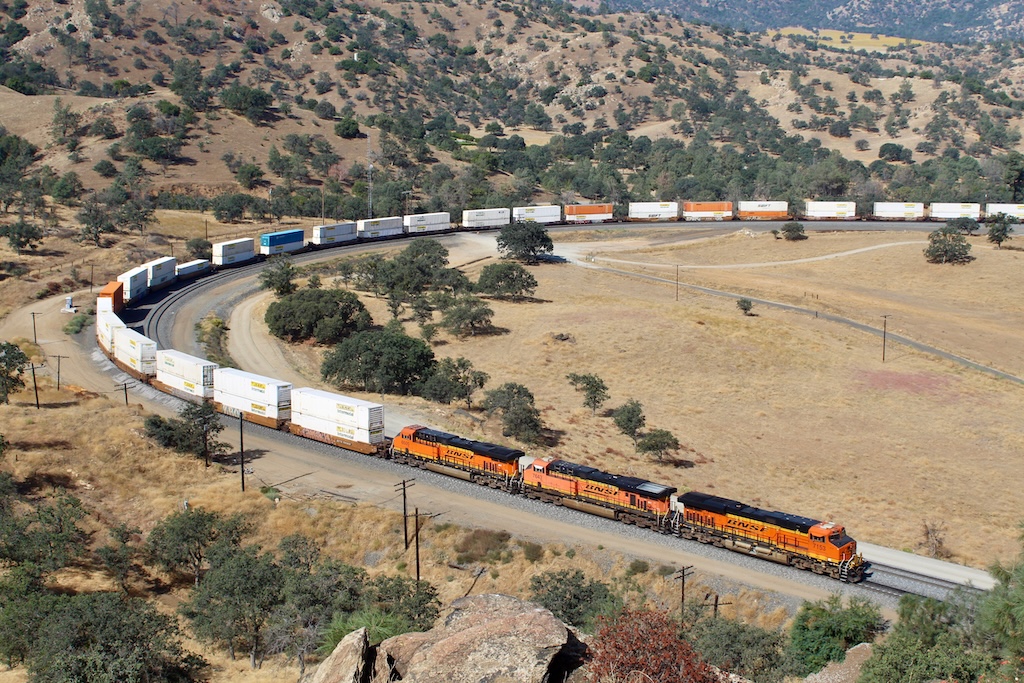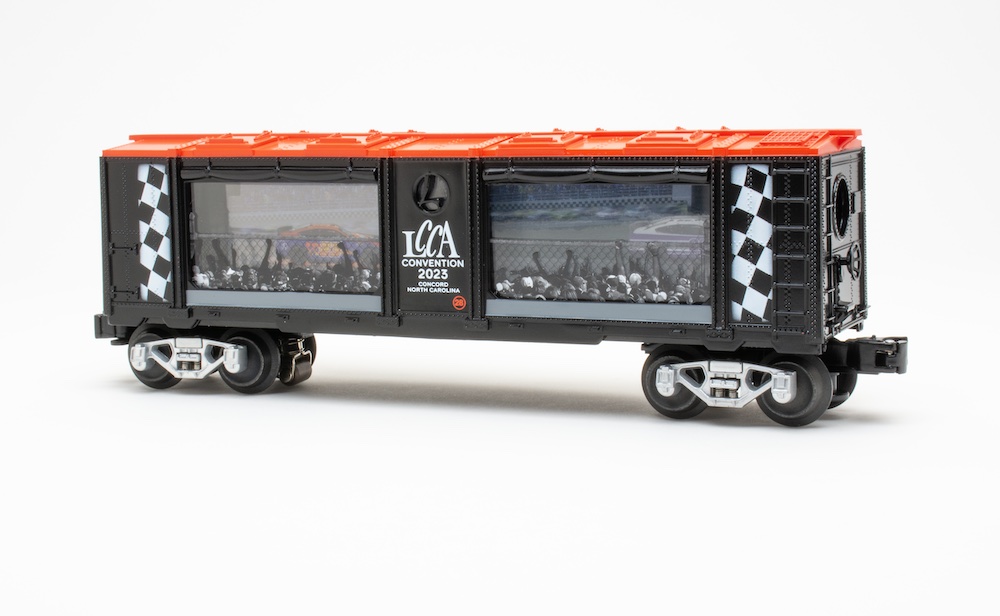
WASHINGTON — Navajo Transitional Energy Co.’s request for an emergency service order that would force BNSF Railway to handle more of its export coal would jeopardize service for other Powder River Basin coal producers, a mining company and the Crow Tribe have told federal regulators.
NTEC, in a complaint filed with the Surface Transportation Board last month, says BNSF has failed to provide adequate service from the Spring Creek Mine in Montana to the Westshore Terminals at Roberts Bank in Delta, British Columbia. The coal company, in a separate filing, also seeks an emergency service order from the STB that would require BNSF to handle 29 loaded trains per month beginning May 1.
BNSF handled 17 NTEC trains in February and 22 in March, which NTEC says was below the 24 to 30 trains per month that the coal company sought as part of a Nov. 1, 2022, service request. The coal is exported to customers in Japan and South Korea.
But Global Coal Sales Group, which arranges the sale and transportation of coal produced at the Signal Peak Mine in Roundup, Mont., told the STB in a May 5 filing that an emergency service order for NTEC “would have significant economic, operational, and safety impacts for Global.”
The Crow Tribe, in a May 5 regulatory filing, told the STB that it would be affected by an emergency service order because it’s been seeking BNSF service to export coal. “I write to express our deep concern that an emergency service order entered by the Board could significantly impact our plans to begin exporting coal as early as 2Q 2023 as well as our ability to trade in the export coal market. As such, I urge the Board to carefully consider such competitive impacts in evaluating NTEC’s request for an emergency service order and to take no action that would limit our ability to export Crow coal,” wrote Conrad Stewart, energy director for the tribe.
BNSF and NTEC filed supplemental briefs with the STB on Friday in advance of their May 10 oral arguments before the board.
BNSF has urged federal regulators to reject NTEC’s request for an emergency service order, arguing that its desire to take advantage of the hot export coal market does not constitute an emergency.
BNSF also says it’s still experiencing capacity constraints in the Pacific Northwest, and that ordering BNSF to increase service to Spring Creek mine would require the railroad to reduce service to other Powder River Basin customers. BNSF argues that it is entitled to prioritize coal moving under contracts when capacity constraints began to limit the total amount of coal that could be transported to Westshore.
NTEC has asked the board to determine that BNSF has failed to provide adequate service, to define the scope of BNSF’s common carrier obligation, the restoration of adequate service, and unspecified monetary damages.
In a supplemental brief filed on May 5, NTEC said BNSF has agreed to increase its June coal train allocation to 22 trains, up from the 16 it previously forecast. NTEC says that still falls well below its needs.














Curious how many coal trains did the UP and BNSF haul during their prime time from the PRB?
I wonder if J B is aware of this. I thought we were trying to save the world from fossil fuel use. Oh that’s right only in the US, foreign countries can still use it as that doesn’t hurt the climate when they burn it.
I think you’re missing the point. Yes, coal demand is down for thermal coal for US power plants. This is about export coal going to specific ports. Increasing export demand is straining capacity over those routes. Other players are also wanting increased service. Traffic may be down on other routes but increasing in one specific corridor.
Its funny that in this case, BNSF wants to have its cake and eat it too. They say that have no more available train sets, a problem they made when they furloughed so many train crews and sidelined the locomotives and train cars. Then they get the Crow Indian Tribe to file a petition about their own potential coal shipments which if BNSF is to be believed, they can’t handle anyway.
The obvious solution is for the STB to give Union Pacific, which has the resources available and is already in the PRB, temporary track rights over BNSF to haul the extra loads that NTEC wants shipped which will allow BNSF to keep going as they are currently without having to alienate their current customer Global/Signal Peak. Maybe by the time the Crow’s get around to mining their coal, BNSF will have rehired the necessary crews to take care of their own business, or if not, UP may have a new customer…
At first they said they didn’t have enough crews to support additional loads. Then they said they don’t have rail capacity to support additional loads. But just today BNSF reported that intermodal is down in volume so you would think there would be something freeing up to allow a few more loads to pass.
There are a lot of empty coal cars in the east where plants converted to NG and can’t go back to coal. So they sit on faraway sidings waiting for the scrappers call. So lack of coal cars is most definitely not a problem that I am aware of.
What are the sources of claims by BNSF of capacity limitations? It is confusing. Since demand for Powder coal is down where are the surplus cars and locos? Is it crews at wrong locations. Or maybe track capacity?
No, it is unwillingness to budge from the stance they have taken that they are not going to bring on extra people and upset their operating ratio. They were doing the same thing to Schneider, limiting them in preference to their “partner” J B Hunt with whom they have a money making deal. So Schneider said “Take your train and shove it” and gave the contract to UP for their coast to coast intermodal. Now this. Its almost like they are saying to NTEC, “your money isn’t green enough for us.” Well it might be green enough for UP just like Schneider’s was and maybe it will become greener for other customers who don’t want to be dictated to by the shipper for no good reason except they can.